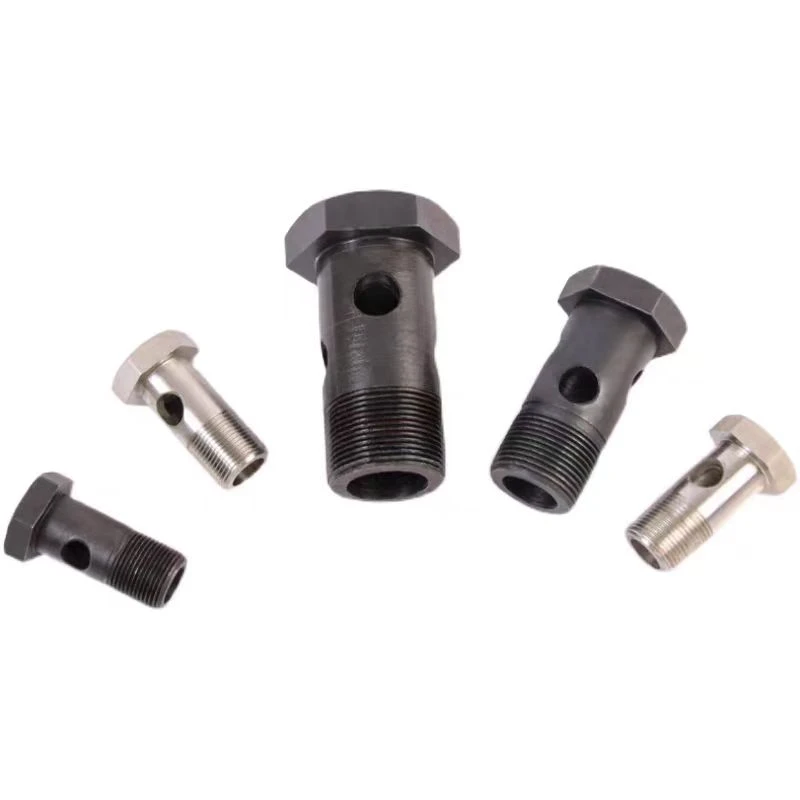

machined flat washers
11월 . 11, 2024 16:28 Back to list
machined flat washers
Understanding Machine Flat Washers Functions, Types, and Applications
Machine flat washers are essential components in various mechanical assemblies and constructions. These small, disc-shaped pieces of hardware might appear inconspicuous, but they play a critical role in distributing loads, reducing friction, and preventing damage to both fasteners and surfaces. Understanding machine flat washers involves exploring their functions, types, materials, and applications across different industries.
What Are Machine Flat Washers?
A machine flat washer is a thin, flat disc with a hole in the center, used with nuts and bolts during the fastening process. Their primary purpose is to provide a smooth surface for the fastener, improving load distribution and increasing the fastening strength. By doing so, they prevent the fasteners from loosening and protect the surfaces beneath them from damage, such as indentation or deformation.
Functions of Machine Flat Washers
1. Load Distribution One of the key functions of machine flat washers is to evenly distribute the load over a larger area. This reduces the stress on any single point of the material, which is crucial in preventing material failure, especially in softer materials.
2. Protecting Surfaces Washers act as a protective barrier between fastening components and surfaces. Without a washer, the sharp edges of a nut or bolt can damage the surface underneath, leading to cracks or scratches.
3. Vibration Resistance In dynamic applications, where vibrations are prevalent, machine flat washers can help maintain a firm grip on the fastener. They minimize the risk of loosening bolts, ensuring long-term stability in mechanical assemblies.
4. Corrosion Prevention In certain environments, flat washers can provide an additional layer of protection against moisture and corrosion, prolonging the life of both the fastener and the materials being joined.
Types of Machine Flat Washers
Machine flat washers come in various types, each designed for specific applications
machined flat washers

2. Oversized Washers Designed for use in applications where a larger bearing surface is needed, these washers are ideal for sensitive or soft materials.
3. Lock Washers Although primarily used to prevent loosening, some types of lock washers can also function similarly to flat washers.
4. Specialty Washers Some applications may require washers manufactured to specific dimensions or materials, such as rubber washers for sealing purposes or insulating washers to prevent electrical conductivity.
Materials Used for Machine Flat Washers
The material of machine flat washers is crucial as it affects their performance
- Steel Commonly used for its strength and durability. It can be zinc plated for corrosion resistance. - Stainless Steel Offers excellent resistance to corrosion, making it suitable for outdoor and marine applications. - Plastic Often used in environments that require non-conductivity or where metal may corrode. - Rubber Typically used when a watertight seal is required or for cushioning between hard surfaces.
Applications of Machine Flat Washers
Machine flat washers have a vast array of applications across different industries
- Automotive Used in vehicle assemblies to ensure tight fastening between components. - Construction Essential in building structures where load distribution is critical. - Electronics In devices where components must be secured without risk of conduction or heat transfer. - Manufacturing In machinery assembly for maintaining secure joints in high-stress environments.
Conclusion
Machine flat washers may seem like simple components, but their importance in various applications cannot be overstated. By distributing loads, protecting surfaces, and enhancing the efficiency of fastening systems, they contribute significantly to the integrity and longevity of mechanical assemblies. Whether you're involved in manufacturing, construction, or electronics, understanding the types and functions of these washers enables better performance and reliability in your projects. As industries evolve, the development of advanced materials and designs for flat washers continues to play a vital role in engineering innovations.
Latest news
-
Premium Fasteners Manufacturer | AI-Driven Solutions
NewsAug.01,2025
-
Hot Dip Galvanized Bolts - Hebei Longze | High Strength, Corrosion Resistance
NewsAug.01,2025
-
High-Strength Hot Dip Galvanized Bolts - LongZe | Corrosion Resistance, Custom Sizes
NewsAug.01,2025
-
Best Self Tapping Screws for Drywall - Fast & Secure Installation
NewsJul.31,2025
-
High-Strength Hot Dip Galvanized Bolts-Hebei Longze|Corrosion Resistance&Customization
NewsJul.31,2025
-
Hot Dip Galvanized Bolts-Hebei Longze Metal Products|Corrosion Resistance&High Strength
NewsJul.31,2025

